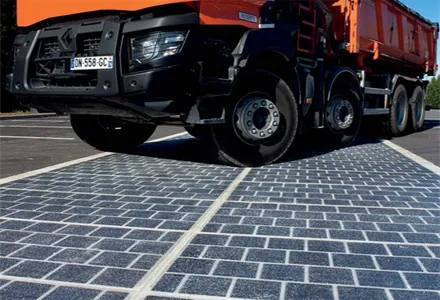Evonik has developed a simple but effective concept to reduce the risk of wrong-way drivers.
The company’s cold plastic, one-sided rumble strips have been developed following a string of incidents in Germany in which drivers have travelled in the wrong direction on stretches of high-speed autobahn. The marking system has undergone successful initial tests and the concept has been received well by German police, looking for a system to deal with the problem. There are around 75-80 crashes/ year in Germany
August 19, 2015
Read time: 2 mins
The company’s cold plastic, one-sided rumble strips have been developed following a string of incidents in Germany in which drivers have travelled in the wrong direction on stretches of high-speed autobahn. The marking system has undergone successful initial tests and the concept has been received well by German police, looking for a system to deal with the problem. There are around 75-80 crashes/ year in Germany alone resulting from drivers travelling in the wrong direction on the autobahn network.
The one-sided rumble strips are installed on the road surface within a 100cm wide by 2cm deep recessed groove across the lane. The specially shaped cold plastic coating features an uneven, rough bulge that gives potential wrong-way drivers both an audible and physical warning, alerting them of the hazard.
But drivers who are travelling in the correct direction will hardly notice the rumble strips and perceive them as no more than a slight bump in the road. Final trials are being carried out and the firm hopes to have the system ready for market shortly.








